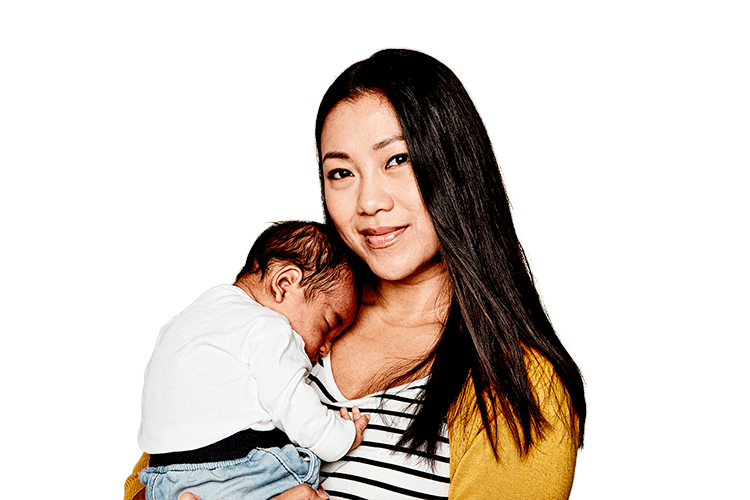For every mother and baby who manage to take to feeding like, well, they’re born to do it, there will be another pair who don’t have such an easy time.

It’s well-known that breastfeeding is a cheap and easy way to get babies the nutrition they need if you can do it. It also provides a valuable time to bond for mother and child. What’s not as well-known is the extent to which breastfeeding helps to protect babies against illness, as the Department of Health states: “Evidence shows that breastfed babies are less likely to suffer from necrotising enterocolitis, diarrhoea, respiratory illness, middle ear infection, Type 1 diabetes and childhood leukaemia.”
It’s not just babies getting some important boosts either, gains for Mum could include “faster recovery from childbirth, reducing the risks of breast and ovarian cancers in later life, and reduced maternal depression.”
What if it’s not going so well?
Because all mums and babies are different, it’s a good idea to keep your expectations around breastfeeding open. Ideally, you’ll first feed your baby shortly after birth, perhaps within the first hour. If this doesn’t happen, it’s important not to worry, instead, seek support from those around you. Whether you’re in a hospital or you’ve taken your baby home, you can ask for help from your maternal health nurse or midwife. They will be able to offer advice on techniques and positions- how you’re holding your baby can make a big difference! They can also check for anything that might be impeding breastfeeding.
MORE: When you can't breastfeed your baby
When should you talk to a professional?
In short, if breastfeeding is painful, it’s time to talk to someone. But even if it’s not actively hurting you, if it’s something that you don’t look forward to, for any reason, or if you’re worried that your baby isn’t getting what they need from it, it’s best to speak to an expert sooner rather than later.
Who do you ask for help with breastfeeding?
Once you’ve left hospital, or you’ve stopped seeing your midwife, if you’re having trouble breastfeeding, a breastfeeding counsellor or a lactation consultant might be a good avenue for help. Your GP should be your first port of call, and they will be able to connect you with local services.
Breastfeeding counsellors
Before you see a lactation consultant, or even while you’re being helped by a lactation consultant, you might seek the services of a breastfeeding counsellor. They are trained volunteers who can give you information and peer-to-peer support. You might engage with a counsellor through phone or email counselling, or attend a local support group.
It’s important to know that these counsellors aren’t medically trained, instead, they are typically women who have breastfed at least one baby, and are able to offer support to other mothers. While they can’t give you any medical advice they can help you decide whether you ask best to speak to your doctor.
Lactation consultants
A lactation consultant is a trained health professional, who will hold a qualification specifically in working with lactating mothers. In Australia and New Zealand, a consultant should hold an International Board Certified Lactation Consultant (IBCLC) qualification.
They will either work within hospitals or in private practice. They are likely to visit you in your home, and to be available for follow-up work over email or on the phone. Check fees with your consultant when you make your first appointment. Make sure to check whether your health insurance policy will pay any benefits towards your lactation consultant.
MORE: Find a lactation consultant in Australia or New Zealand
Need a little extra support?
Health Concierge
Eligible members with hospital cover can now talk to a member of our Health Concierge team for advice and guidance on how to have a healthy pregnancy, at no extra cost on 1800 789 414.#
Got a health question? 24/7 Medibank Nurse Support
Medibank health insurance members can chat to a registered nurse over the phone or online to discuss any health questions or concerns at no extra cost.~ Chat online or call 1800 644 325 24 hours a day, 7 days a week.
24/7 Medibank Mental Health Support
Medibank members with health insurance can talk with a mental health professional over the phone or online in relation to any mental health or emotional concern at no extra cost.~ Log in or call 1800 644 325, 24 hours a day 7 days a week.
Looking for something else?
Visit Medibank Planning, Pregnancy and Parenting for a range of tools and advice to help you at every stage of your pregnancy journey.
Help the way you want it
Contact us
Call us on 134 190 to speak to a consultant. Alternatively, chat to us 24/7 online.
Self-service options
Login to MyMedibank or Download the MyMedibank App for self service options.
Find a specialist
Find a specialist or Member's choice hospital using our find a provider tool.

Things you should know
~ Some referred services may involve out of pocket costs and waiting periods may apply.
# Health Concierge is available to all eligible Medibank members who hold hospital cover. Excludes Overseas Visitor Health Cover, Working Visa Health Cover and Overseas Student Health Cover (OSHC). Some referred services may involve out of pocket costs.
While we hope you find this information helpful, please note that it is general in nature. It is not health advice, and is not tailored to meet your individual health needs. You should always consult a trusted health professional before making decisions about your health care. While we have prepared the information carefully, we can’t guarantee that it is accurate, complete or up-to-date. And while we may mention goods or services provided by others, we aren’t specifically endorsing them and can’t accept responsibility for them. For these reasons we are unable to accept responsibility for any loss that may be sustained from acting on this information (subject to applicable consumer guarantees).